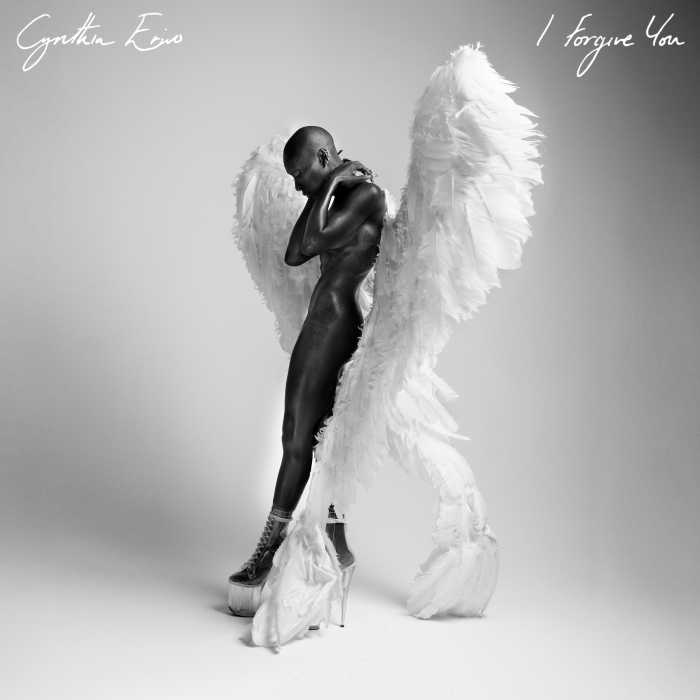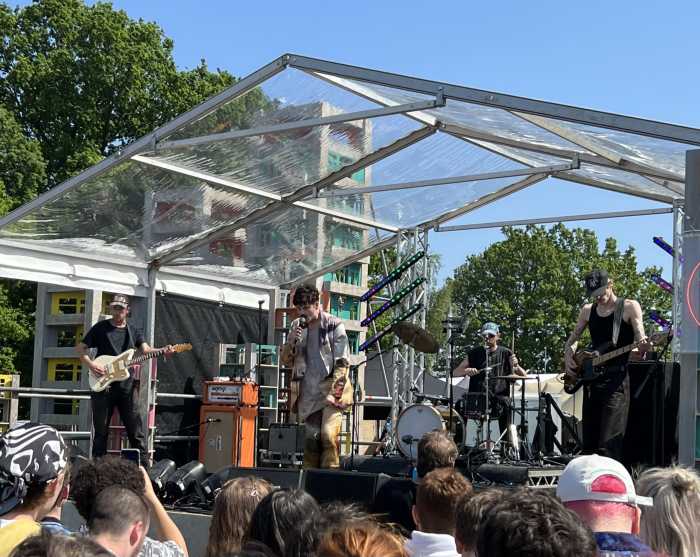Three operatic masterpieces have their moments, but…
BY DAVID SHENGOLD | In March, City Opera improved its buzz — at a low ebb after its BAM productions — when the company mounted “Cosi fan tutte” at John Jay College’s relatively intimate Lynch Theater.
Christopher Alden has the ambitions, instincts, and brains of a Regietheater master, though sometimes his taste and heart are conspicuously lacking. His lifelong fascination with tawdriness and a particular kind of louche male sexuality can pall when seen repeated from one production to another, decade after decade.
That said, he’s produced some outstanding stagings — “The Mother of Us All” remains my favorite — and supplied NYCO with two of its best last-ditch efforts in its vanished home theater in “Don Giovanni” (2009) and “A Quiet Place” (2010).
With “Cosi” (heard March 20), Alden predictably stressed the piece’s considerable dark side — a legitimate counterweight, when it worked, to the Met’s merely decorative reading. Charm and any possibility for pleasure — as opposed to coldly winning a bet, as in the case of Alfonso, stylishly and well sung by Rod Glifry and played as a blank-faced emotional vampire, or carnal gratification, which both eventual couples reached onstage, notably in a “Fra gli amplessi” ending in seemingly joyless oral sex — went AWOL.
Except for some moments from the theatrically enchanting, vocally mettlesome Marie Lenormand — a Despina as much bag lady and active whore as serving maid — the only humor on display was sub-adolescent penis jokes. Nevertheless, the cast, as directed, often laughed loudly during other peoples’ music — Jennifer Holloway, a fine Dorabella when not forced hurriedly through “È amor un ladricello,” supplied manic cackles while rolling offstage during the men’s Laughing Trio.
Overall, Christian Curnyn supplied a strong musical reading except for patchy violin and viola tone. We lost “Ah, lo veggio,” a shame since Allan Clayton sang “Tradito, schernito” very well. His tenor sounded too bright and cutting, however, for “Un aura amorosa.”
Sara Jakubiak — a standout in “A Quiet Place” and exactly the kind of vibrant young singer NYCO should be building projects around — was a sympathetic, dramatically fearless Fiordiligi. Her bright, attractive soprano functioned capably but lacked the technical and tonal resources to do justice to “Per pieta,” which is not surprising for a still-young singer. Philip Cutlip, a very fine lyric baritone, was too often directed to shout his lines here. He functioned mainly as beefcake, which seemed enough to win over several local critics.
The Met’s had poor luck with “Manon” and its protagonist. Massenet’s sentimental but potent creation received new productions generally acclaimed failures in 1963 (Anna Moffo) and 1987 (Catherine Malfitano). A few performances featured apter heroines in Mary Costa, Diana Soviero, and Renée Fleming, but in general, Beverly Sills, Patricia Brooks, and Faith Esham at NYCO set New York standards for the part.
Now, Anna Netrebko, in a somewhat cartoonish co-production by Laurent Pelly first seen in London, has assumed (March 26) the straying Material Girl’s many attitudes and costumes. Improbably, she changed clothes on the way to St. Sulpice — to bridal white with no shawl or hat — and just as improbably, the church featured a bed on which she could seduce her ex, ripping his priestly garments off with aplomb.
It proved quite a good fit. Netrebko, looking more youthful and girlish than in September’s “Anna Bolena,” certainly rivets attention visually, and she has improved her French diction somewhat since her Offenbach Antonia in 2009. Except for two disastrously flat high Ds in the “Cours-la-Reine” scene, she sang with a gorgeous flow of tone. Her instrument is too dark, its tone not sufficiently “pointed” to “tell” quickly enough in some of the intricacies of the music, so Fabio Luisi, who generally led with honest dispatch, slowed down certain passages for her. But even if Netrebko is now more naturally a Puccini Manon, her lovely arcs of sound, good humor, and sincere chemistry with Piotr Beczala’s ardent des Grieux, proved hard to resist. The Met audience loved her.
For devotees of French style, however, the night belonged to Beczala, totally credible physically, vocally, and stylistically in his first-ever Chevalier. He’s really mastered the French language and has the ability to diminuendo with great skill. The high notes blazed out when appropriate. Both his arias were met with impassioned ovations. He looked and moved well — altogether, an excellent performance.
Peter Gelb craves that the Met be associated with mainstream Broadway theater, so he hired Paulo Szot, the handsome prize-winning star of a recent revival of “South Pacific,” as Lescaut. Like Szot’s previous Met assignment in “The Nose,” the part showed his voice to be undersized and ordinary in the large opera house context; Szot pushed both vocally and dramatically to make an effect.
David Pittsinger, Szot’s alternate as Émile de Becque on Broadway, made a splendid, well-acted, and stylishly sung Comte des Grieux. Bradley Garvin (Bretigny) looked imposing but sang with some roughness and little Gallic flair. The superbly uttered and pungently acted Guillot of company debutant Christophe Mortagne, a veteran of the Comedie Francaise, put everyone but Beczala and Kathryn Day (Maid) into the shade linguistically.
Lionel Hoche’s choreography was apt, but the banal ballet music merited cutting. Chantal Thomas’s largely gray sets and Pelly’s costumes bounced between the 1880s and 1950s, and at times, the blocking seemed perverse. Still, by this season’s standards, this “Manon” had much to enjoy.
Speaking of company standards, “Macbeth” (April 5) revealed what was doubtless the weakest leading pair in company history. Thomas Hampson projected little of his character’s noble status or ignoble personality His singing, devoid of any real beauty, teetered on Fischer-Dieskau parody — crooned tenorish passages, dry declamation, and husky near-shouting at climaxes.
Nadja Michael took about 30 seconds to strip down to a slip, giving an all-purpose dramatic performance that would work as Salome or Marietta — two other roles in her repertory, if hardly in her voice. Her uneven singing was not as poor as on the radio broadcast; in house, at least she produces some volume on high. But too much, especially in the opening scene and the unmoving, quick-tempo Sleepwalking Scene, was unfocused, choked, inaccurate, and flat. Some cheered her heartily, for being slim I suppose. No more, please.
Dimitri Pittas, no actor, sang Macduff’s aria more than passably, showing marked improvement since his October “Boheme,” though the top remains a bit pressured. Guenther Groissboeck acted Banquo well and sang with an attractive if unimposing bass.
The best vocal performances came from Richard Cox and Claudia Waite in the unglamorous duties of Malcolm and the Lady-in-Waiting. One enjoyed the evening for the frequent brilliance of Verdi’s score and the excellent work of Gianandrea Noseda’s orchestra and Donald Palumbo’s chorus.


































